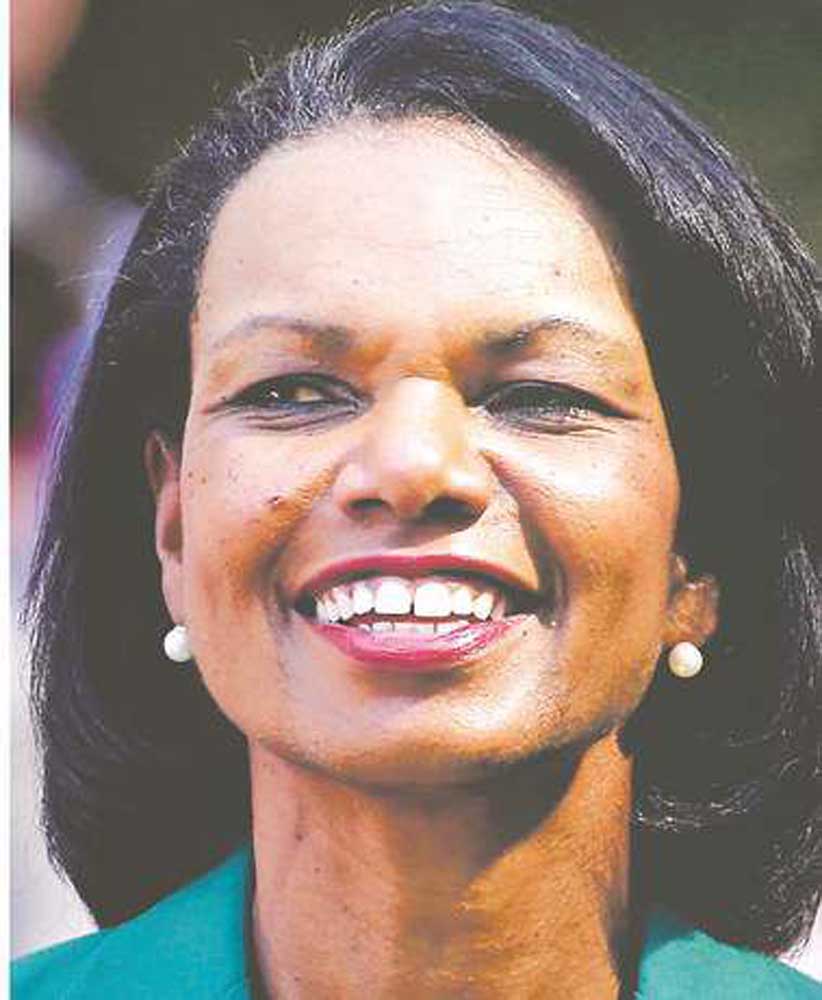Rice takes on new role with diplomacy
Published 5:00 am Tuesday, October 22, 2013

- Rice
PALO ALTO, Calif. — John Wesley Rice played football and coached football. He loved football. He was an offensive tackle, and he taught his daughter to appreciate line play and games called on the radio, and they religiously followed the Alabama Crimson Tide and the Cleveland Browns.
His daughter, Condoleezza Rice, would become the national security adviser and the secretary of state. But when she was a diplomat, her football obsession only deepened. She often recalled her first in-person Alabama football contest. It was 1966 or ’67. Ken Stabler was the quarterback.
Trending
Rice shared that memory again Saturday as she stood on a terrace at Stanford Stadium, her beloved Cardinal minutes from the opening kickoff against UCLA. Earlier in the week, Rice was named to the college football playoff selection committee, and her nomination drew mild criticism from football cave men and widespread acclaim elsewhere.
Clad in Cardinal red, she paused for the national anthem, her right hand over her heart. She looked down at the band and the cheerleaders and the players, all the pomp of another college football Saturday. She was asked what her father, who died in 2000, would make of all this: first, that next season there would be a college football playoff; then, that his daughter would help select the teams.
“He’d be thrilled about the playoff system,” she said. “I think he’d think I’ve finally found honest work.”
John Wesley Rice, like a lot of college football fans, thought that the way national champions were selected made little sense. The 1966 season caused much consternation in that regard. That was the year Notre Dame went for a tie against Michigan State, and both teams finished the season undefeated and ahead of Alabama in the polls.
Both Michigan State and Notre Dame were crowned national champions by the various entities who made selections. Alabama, also undefeated, winner of the Sugar Bowl, generally came in third.
Rice and her father had listened to Notre Dame-Michigan State on the radio. “He was so frustrated that the national champion had a tie,” she said. “He was never satisfied with that. You had split polls. You had subjectivity. Like all football fans, there was always frustration about not determining the champion head-to-head.”
Trending
That will change next season, when a selection committee with about 230 combined years of experience in college football, with three Hall of Famers and a former member of Congress and a retired three-star general, will pick four teams for a semifinal format. The committee does not lack brainpower. It includes a Rhodes scholar, three Phi Beta Kappa graduates, two academic all-Americans and a reporter who recently retired.
Rice was the lone woman named to the committee, less than 14 months after she became one of the first two female members at Augusta National Golf Club. Some, most notably former Auburn football coach Pat Dye, took exception to her inclusion. Dye said that everything she knew about football had been learned secondhand, that she could not understand the sport without having played “with your hand in the dirt.”
Never mind that the same could be said of some male committee members. Or that Rice spent Saturday much the way she spends most autumn Saturdays: awake at 6 a.m., her television tuned to ESPN’s “College GameDay”; followed by game surfing between Minnesota-Northwestern, South Carolina-Tennessee and Navy-Toledo; followed by the Stanford home game; followed by more television time at night. She even planned to catch ESPN’s “College Football Final” before bed.
Rice cared little for the controversy, which dissipated almost as quickly as it flared. She is familiar with both criticism and football, a combination ideal for a committee that will make tough decisions for each postseason. She regularly talks football with David Shaw, Stanford’s coach. Asked about the hubbub over her credentials, he said, “There were questions about Andrew Luck’s arm strength, too. I feel the same way about her.” (Luck was an all-American and a No. 1 overall draft choice. He is now a budding NFL star with Indianapolis.)
From 1993 to 1999, Rice served as Stanford’s provost. The athletic department reported to her office for things like budgets and compliance. She was on the committees that hired Dennis Green and Tyrone Willingham as football coaches.
Willingham was also named a member of the selection committee last week. He led the Cardinal to the Rose Bowl in the 1999 season, coincidentally the last game Rice watched in person with her father.
Larry Scott, the commissioner of the Pacific-12 Conference, first broached to Rice the idea of her fit on the selection committee. “Why me?” was her initial reaction. He told her that the conference commissioners wanted a variety of backgrounds, integrity in decision making, not just insiders but also others who understood the game.
“I thought it would be amazing to get someone of that caliber that is a really serious sports fan involved,” Scott said last week in an interview. “It takes the caliber of the committee to a whole different level.”
Rice plans to draw on her diplomatic background. She is, after all, familiar with the collaborative process: seek data, refine data, question data, argue data, come to some sort of consensus. She is pleased that strength of schedule will be heavily considered. Her father would have liked that.
On Saturday, she glanced toward the field to check how many minutes remained before kickoff. Stanford would win, 24-10, to remain in contention for the Bowl Championship Series, which is in its final season. Rice had talked enough about politics for one day.
“If you’ll excuse me,” she said, “I’ve got to get my game face on.”








